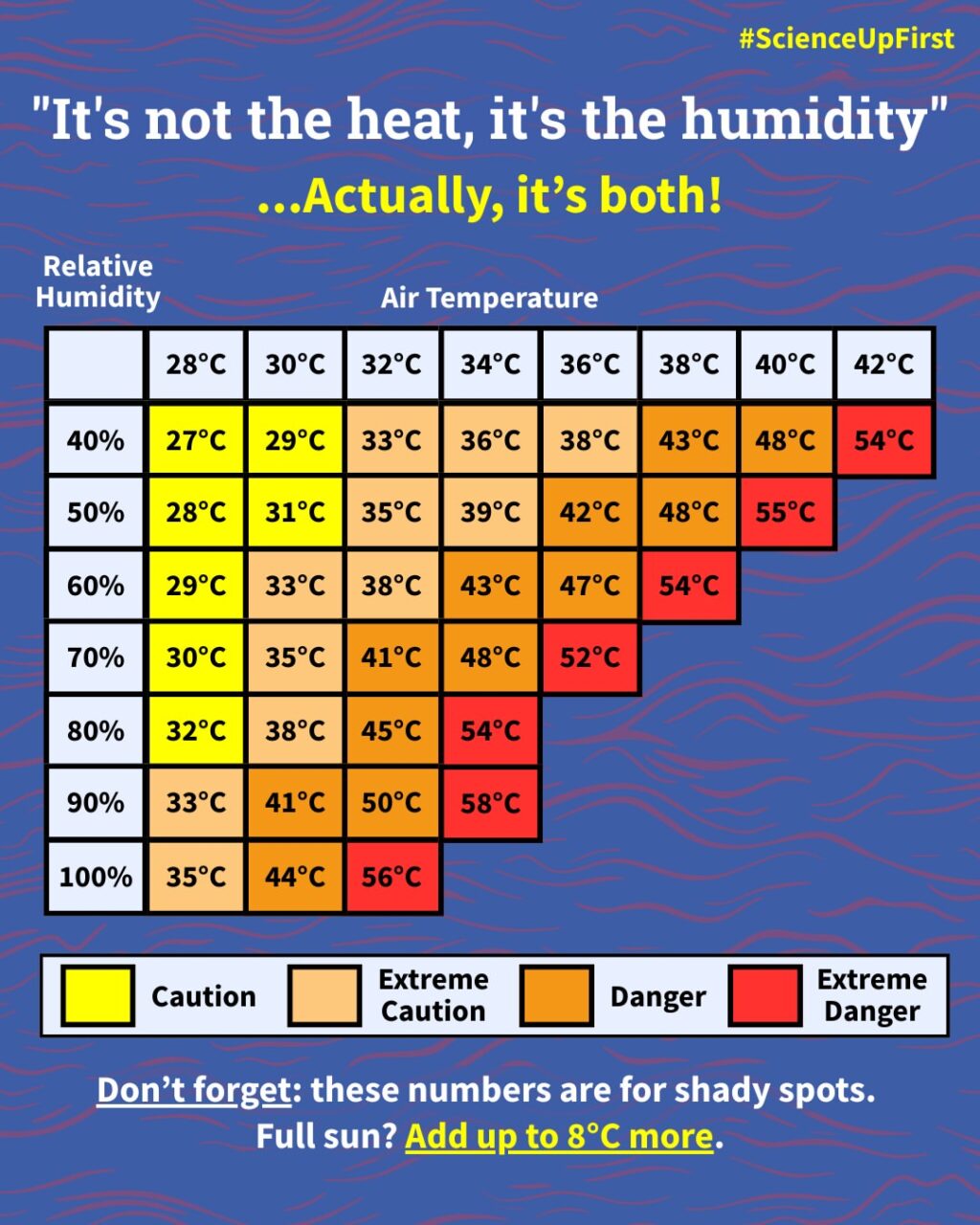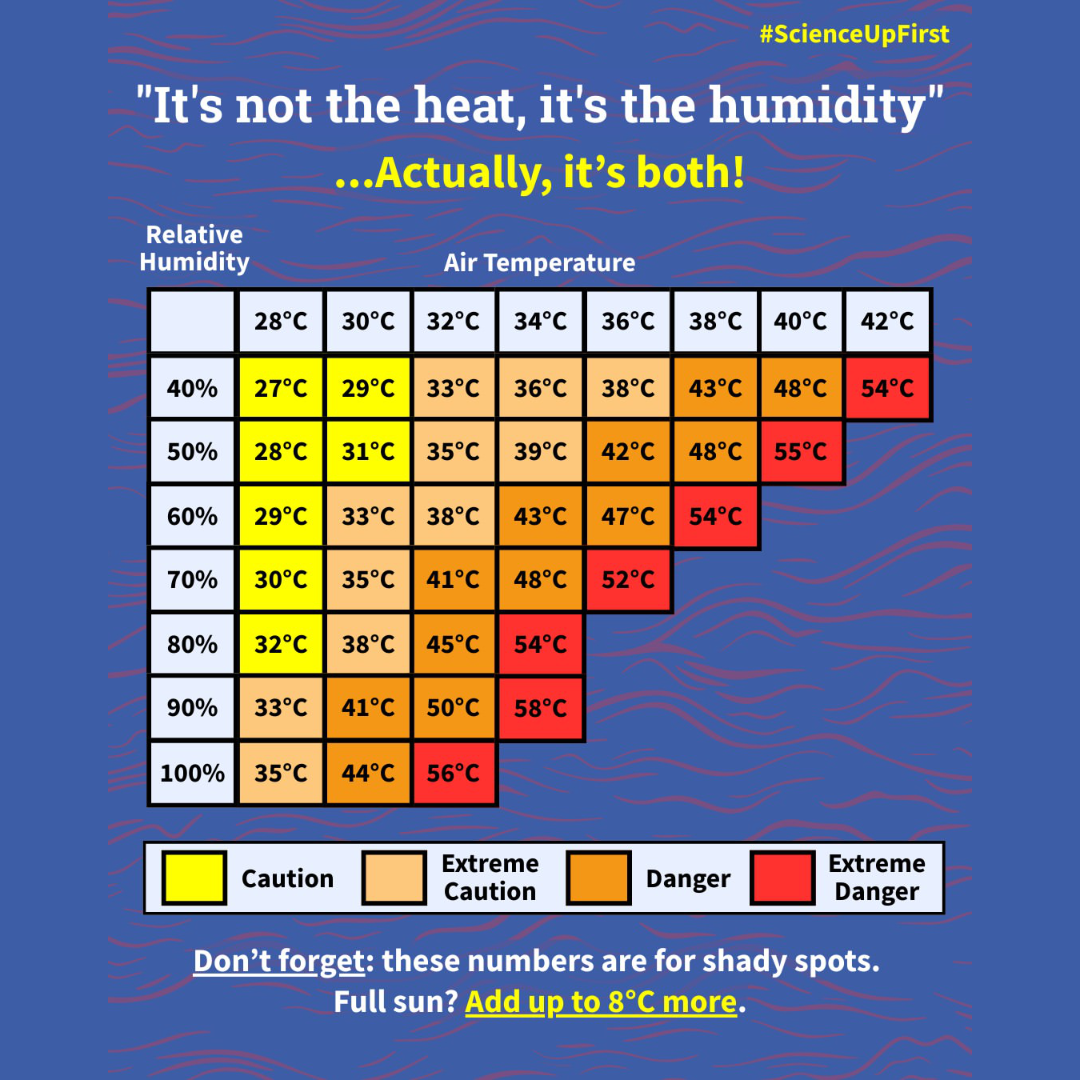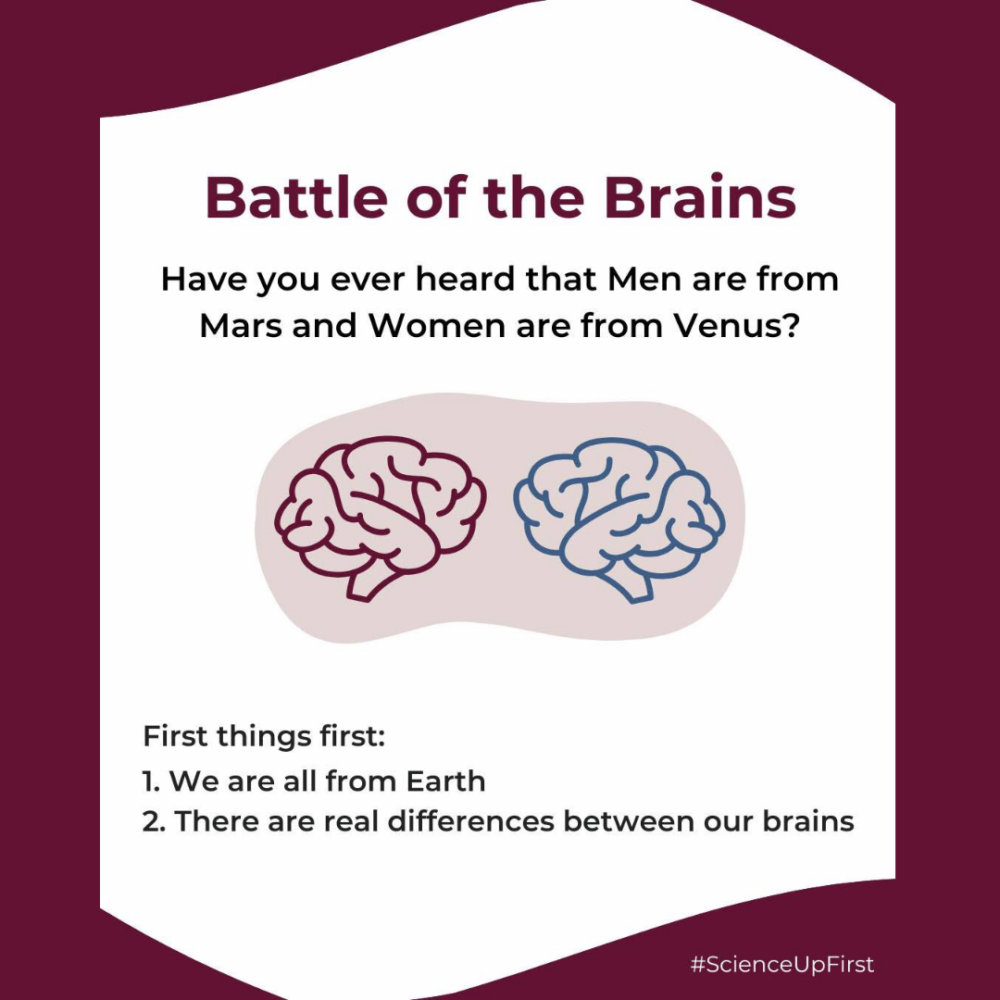
Ever notice how some hot days feel way more intense than others, even though your thermometer shows the exact same temperature? That’s humidity at play. When it’s hot, your body tries to stay cool by sweating. As sweat evaporates, it takes heat with it, cooling you down. But when the air is already full of moisture – a.k.a high humidity – sweat doesn’t evaporate as easily. So instead of cooling down, your body just stays hot and sticky (1).
This is where the humidex or heat index comes in. These numbers tell us how hot it feels to our body when we combine temperature and humidity (1,2). For example:
35°C with high humidity can feel more like 45°C.
Similarly, if the humidity is low (~15%), 37.7°C can feel more like 35.5°C (1,3).
When the humidex is above 39, heat can become very uncomfortable and it’s best to avoid physical activity. Above 45? Heat stroke becomes a serious risk (2).
That’s right, humidity doesn’t just make things uncomfortable, it can be dangerous. If it’s high enough, it can make your body’s cooling system shut down. When relative humidity hits 90%, sweat stops evaporating entirely (2). That means your body can’t cool itself at all, and your internal temperature rises, sometimes to the point of illness (check-out our post on heat-related illness – 4).
This is especially risky for people with asthma, chronic obstructive pulmonary disease, or other conditions. High heat and humidity can make air more stagnant, trapping pollutants that can worsen breathing problems (5).
Scientists are still debating exactly how deadly humidity is in extreme heat, but one thing’s clear: when the air is hot and heavy with moisture, our bodies struggle to cope (6,7,8,9,10,11).
Resources on this topic also include the concept of the “wet-bulb temperature“, such as in this helpful article from CBC News:
- What is the heat index? | National Weather Service – National Oceanic & Atmospheric Administration (NOAA)
- Humidex Rating and Work | Canadian Centre for Occupational Health and Safety (CCOHS) | July 2024
- Heat Index Chart | National Oceanic & Atmospheric Administration (NOAA)
- Know the Signs: Heat Exhaustion vs Heat Stroke | ScienceUpFirst | July 2025
- How to protect your lungs on hot and humid days | Canadian Lung Association
- Does humidity make heat more deadly? Scientists are divided | Science | July 2024
- Humidity’s Role in Heat-Related Health Outcomes: A Heated Debate | Environmental Health Perspectives | May 2023
- The Role of Humidity in Associations of High Temperature with Mortality: A Multicountry, Multicity Study | Environmental Health Perspective | September 2019
- Optimal heat stress metric for modelling heat‐related mortality varies from country to country | International Journal of Climatology | July 2023
- An adaptability limit to climate change due to heat stress | PNAS | March 2010
- Humid heat exceeds human tolerance limits and causes mass mortality | Nature Climate Change | December 2024
Share our original Bluesky Post!
Ever notice how some hot days feel way more intense than others, even though it’s the exact same temperature? Learn more about humidex and how it can become dangerous 👇 scienceupfirst.com/science-101/… #ScienceUpFirst
— ScienceUpFirst (@scienceupfirst.bsky.social) August 13, 2025 at 1:17 PM
[image or embed]
View our original Instagram Post!




